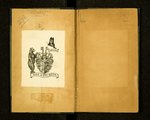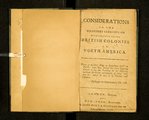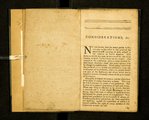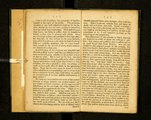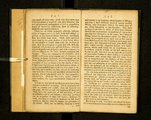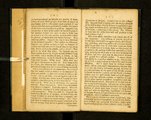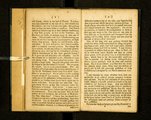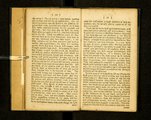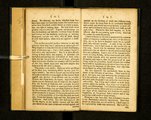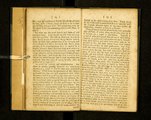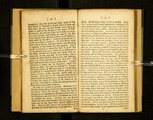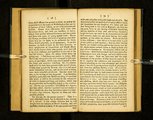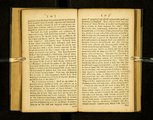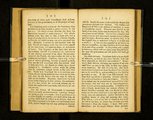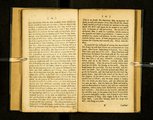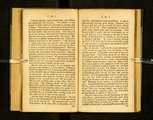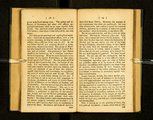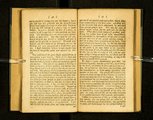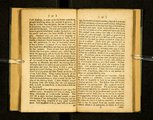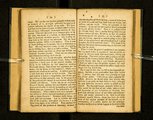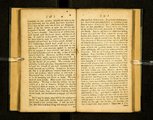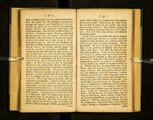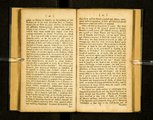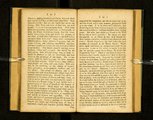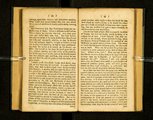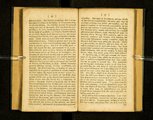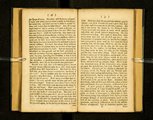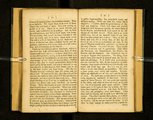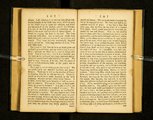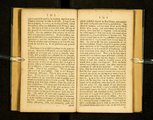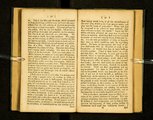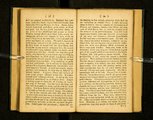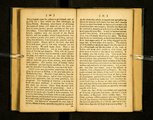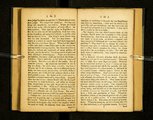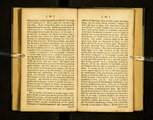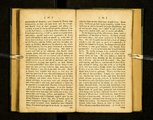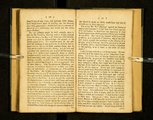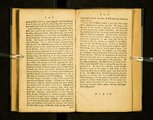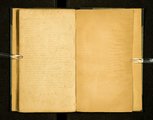| Title |
Considerations on the measures carrying on with respect to the British colonies in North America. |
| Call Number |
E211 .R746; Record ID 99437360102001 |
| Date |
1774 |
| Description |
Second edition of an essay by an eccentric nobleman expressing sympathy with the complaints of the American colonists regarding taxation without representation. |
| Creator |
Rokeby, Matthew Robinson-Morris, Baron, 1713-1800 |
| Subject |
United States--History--Revolution, 1775-1783--Causes; Great Britain--Colonies--America--Financial questions; United States--Politics and government--1775-1783; Taxation--United States |
| Type |
Text |
| Format |
application/pdf |
| Identifier |
E211-_R746.pdf |
| Language |
eng |
| Spatial Coverage |
Great Britain; United States |
| Collection Name |
Rare Books Collection |
| Holding Institution |
Rare Books Division, Special Collections, J. Willard Marriott Library, University of Utah |
| Rights |
http://rightsstatements.org/page/NoC-US/1.0/ |
| Scanning Technician |
Ellen Moffatt |
| Digitization Specifications |
Original scanned with Hasselblad H6D 50c medium format DSLR and saved as 800 ppi tiffs. Display images created in Adobe Photoshop Lightroom CC and generated in Adobe Acrobat DC as multiple page pdf. |
| ARK |
ark:/87278/s67121m8 |
| Setname |
uum_rbc |
| ID |
1309665 |
| Reference URL |
https://collections.lib.utah.edu/ark:/87278/s67121m8 |


